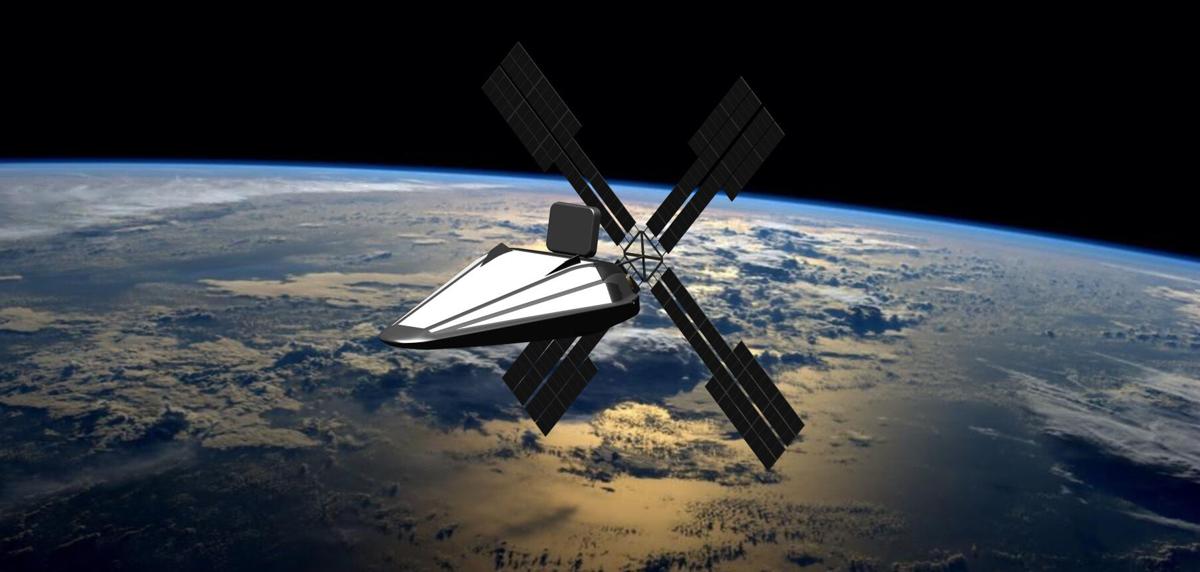A Florida-based startup developing a spaceplane-satellite hybrid plans to open a new engineering and manufacturing facility at Sierra Vista Municipal Airport to be operational by 2026.
BlackStar Orbital Technologies Corp., headquartered near Kennedy Space Center on Florida’s Space Coast, plans to develop and produce its BlackStar Spacecraft at the Southern Arizona site with at least 50 new employees, according to the Arizona Commerce Authority.
The company plans to invest $7.1 million in the Sierra Vista facility, which will encompass 45,000 square feet, including 25,000 square feet of dedicated hangar space and a projected initial production capacity of 15 spacecraft per year, scaling up to full production by 2026, according to the agency.
The company’s spaceplane-satellite hybrid can be fitted with a variety of sensors and mission equipment, the company said.
Once its orbiting mission is completed, the “space drone” can land like a plane and be re-used — saving millions of dollars versus single-use satellite vehicles that eventually burn up on re-entry to the atmosphere, BlackStar Orbital co-founder and President Christopher Jannette said.
“We can avoid that completely by simply landing it after we’re done with the mission, refurbishing the vehicle and flying it again,” he said.
The hybrid spacecraft features a modular payload system designed for missions including Earth observation, advanced communication systems and micro-satellite deployment.
An initial version is about 6 feet long and 3½ feet wide, scalable to larger sizes for bigger payloads, the company says.
Jannette said the new site’s strategic location and robust support from the City of Sierra Vista and the Arizona Commerce Authority spurred the company’s siting decision.
“Sierra Vista provides a unique opportunity for us to work in an area where we can have access to high quality technical talent with experience for the (Department of Defense) and the commercial space sector,” said Jannette, an engineer who worked on rocket-propulsion systems at NASA’s Kennedy Space Center and Cape Canaveral Space Force and at SpaceX in Florida.
The site also provides an opportunity to conduct flight testing in an area that is outside of populated zones, Jannette said, citing a suitable range area near the Sierra Vista airport.
While the company’s timeline is ambitious, it could begin production and flight testing by sometime in 2025, possibly using temporary facilities, said Jannette, an Air Force veteran and Arizona State University engineering graduate.
BlackStar already is collaborating with another startup in Tucson.
In December, BlackStar and Tucson-based, small-rocket startup Phantom Space reached an agreement to collaborate on satellite launches of BlackStar’s Spaceplane, with an initial demonstration launch targeted for the fourth quarter of 2025.
Jannette said he is counting on $7 million in tax breaks through the Arizona Commerce Authority, contingent on the company meeting certain hiring and salary goals, to help launch the company’s operations.
The company has so far been seeded with private investors and is looking to raise about $30 million in new capital, Jannette said.
Tucson-based World View Enterprises plans to start flying tourists to the stratosphere in balloon vehicles by 2024. Video courtesy of World View.





